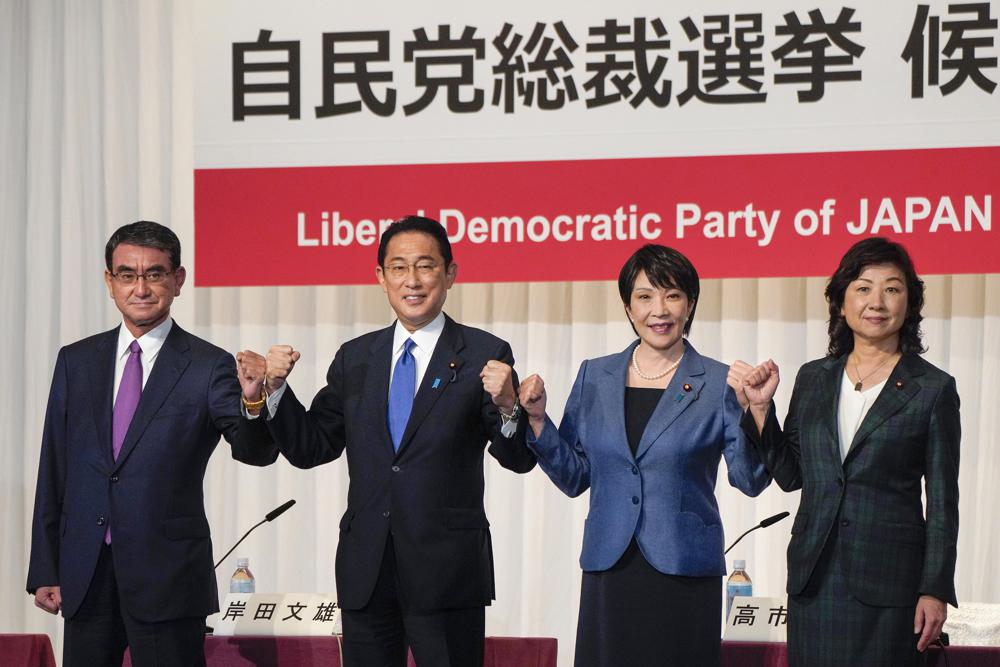Kishida’s priorities
Mr Kishida has adopted a markedly more sceptical view towards China than in the past as he tries to hedge the risks of the very strong dependence that Japan has on the Chinese market.
The new leader also needs to change the party’s high-handed reputation, worsened by the outgoing Prime Minister Yoshihide Suga who angered the public over his handling of the coronavirus pandemic and insistence on holding the Olympics.

Candidates for the presidential election of the ruling Liberal Democratic Party pose prior to a joint news conference at the party's headquarters in Tokyo
Japan’s governing party is voting to pick its new leader Wednesday, with the presumed next prime minister faciYong imminent, crucial tasks such as addressing a pandemic-hit economy and ensuring a strong alliance with Washington amid growing regional security risks.
The new leader also needs to change the party’s high-handed reputation, worsened by the outgoing Prime Minister Yoshihide Suga who angered the public over his handling of the coronavirus pandemic and insistence on holding the Olympics in Tokyo this past summer.
The long-ruling conservative Liberal Democratic Party desperately needs to quickly turn around plunging public support ahead of lower house elections coming within two months, observers say.
Advertisement
Wednesday afternoon’s vote includes only LDP parliamentarians and grassroots members, and results will be known within hours. Whoever wins the LDP election will become prime minister because the party has control of parliament. The vote there is expected next Monday and the new prime minister would form a new Cabinet later that day.
Taro Kono, the vaccinations minister, and former Foreign Minister Fumio Kishida are considered the top contenders, though unusually, two women are competing — ultra-conservative Sanae Takaichi and liberal-leaning Seiko Noda.
Takaichi has risen to a competitive third option after getting the crucial backing of Suga’s predecessor, former Prime Minister Shinzo Abe, whose conservative vision and revisionist stance she supports.
At a Tokyo hotel, lawmakers cast their votes one by one in a ballot box on stage when their names were called.
If nobody gets a majority in the first round of the vote, which is likely because the top three candidates appear to have close support, the winner will be determined by a runoff mostly by lawmakers.
Kono, known as something of a maverick and a reformist, supports eventually phasing out nuclear energy, while Kishida calls for growth and distribution under his “new capitalism,” saying Abe’s economic policy only benefited big companies. Takaichi, by far the most hawkish who wants greater military capability and spending, promises to visit the controversial Yasukuni Shrine. Noda pushes for women’s rights and diversity.
Overall, little change is expected in key diplomatic and security policies under the new leader, said Yu Uchiyama, a political science professor at the University of Tokyo.
All of the candidates support close Japan-U.S. security ties and partnerships with other like-minded democracies in Asia and Europe, in part to counter China’s growing influence.
Analysts think Suga lost support because of party complacency and an increasingly high-handed approach forged during Abe’s long leadership.
Wednesday’s vote is seen as a test of whether the party can move out of Abe’s shadow. His influence in government and party affairs has largely muzzled diverse views and shifted the party to the right, experts say.
Advertisement